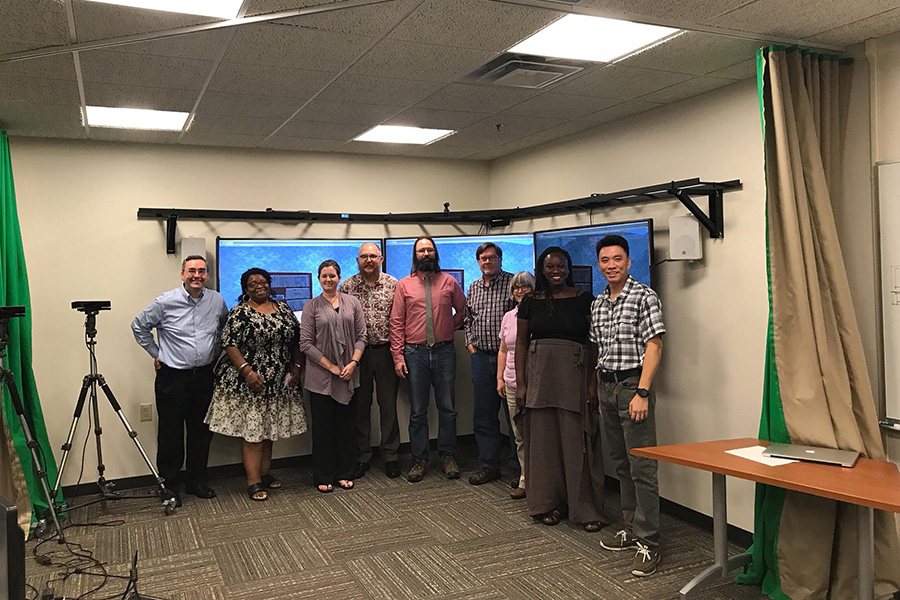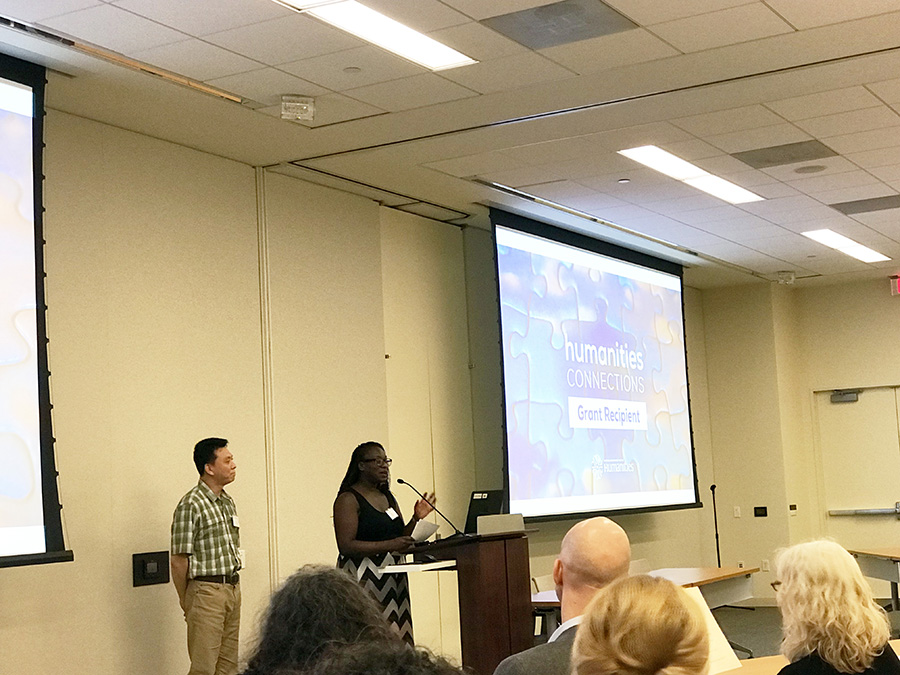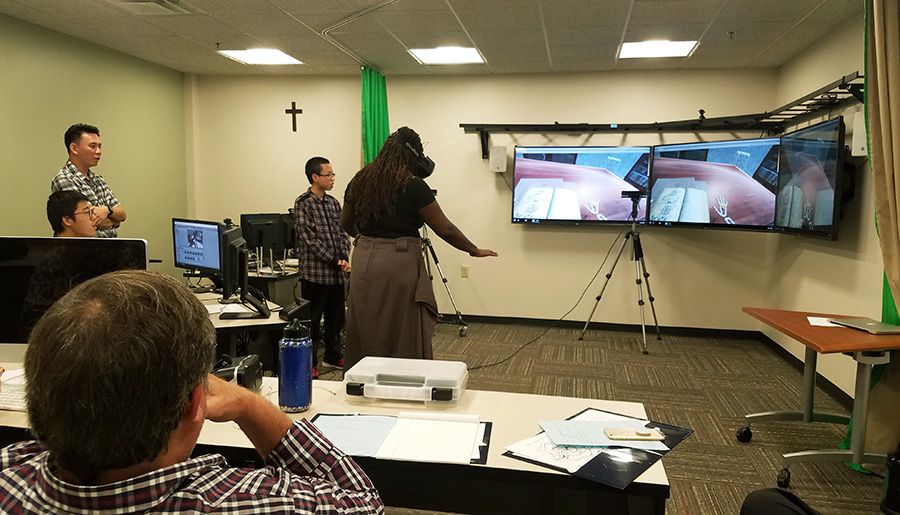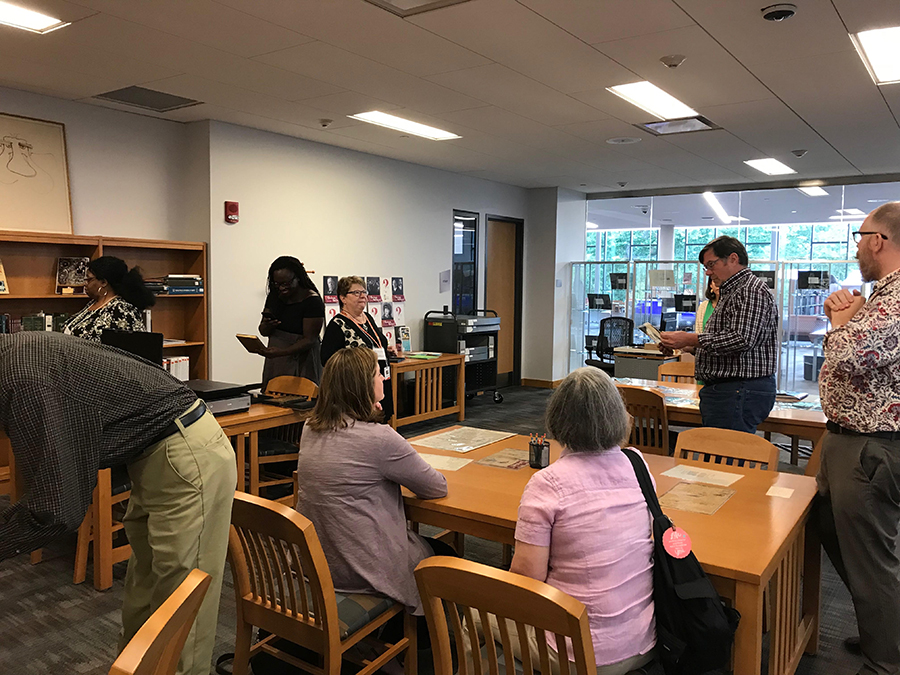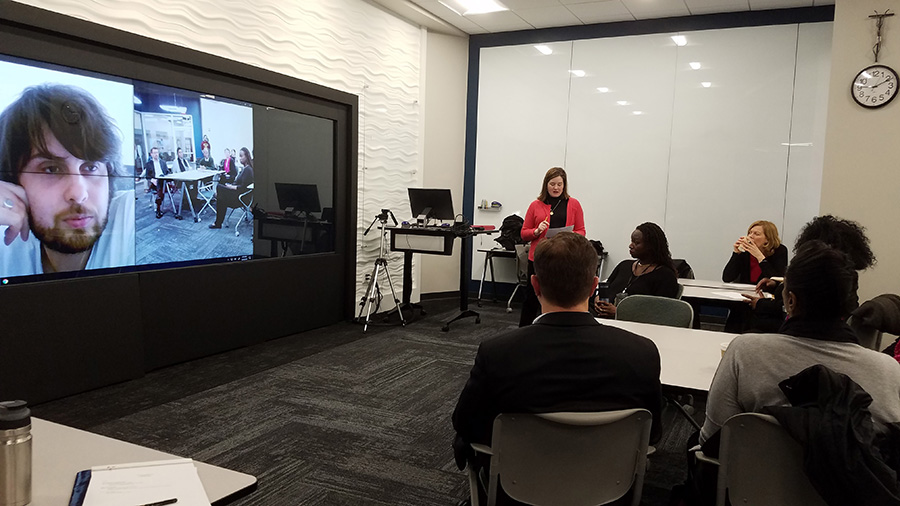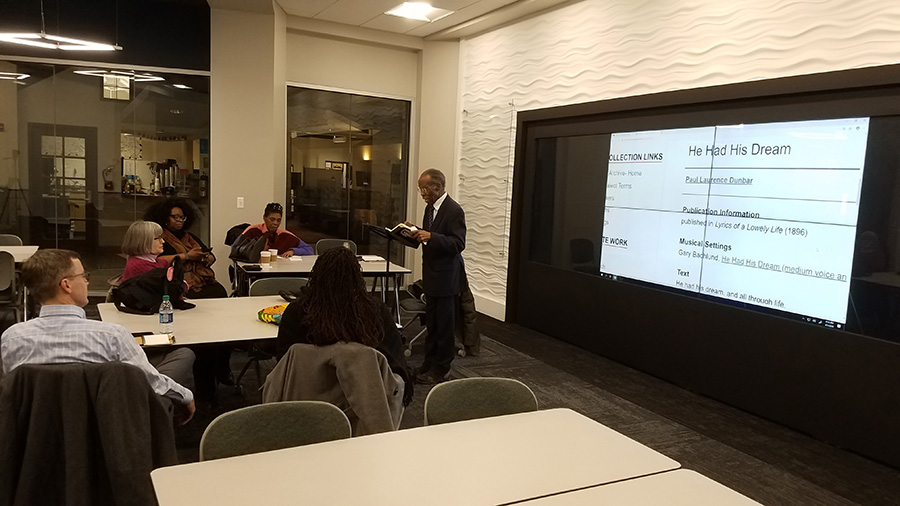College of Arts and Sciences Newsroom
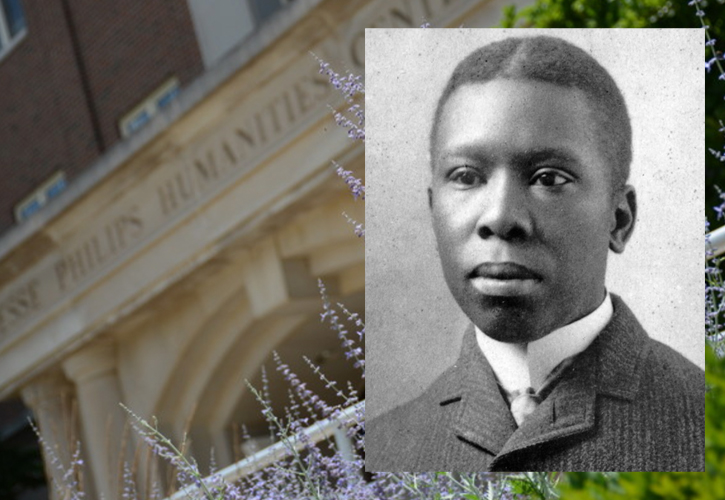
National Endowment for the Humanities awards University of Dayton nearly $100K for creation of Paul Laurence Dunbar courses and archive
By Dave Larsen
The National Endowment for the Humanities awarded the University of Dayton nearly $100,000 to develop interdisciplinary courses and create a digital archive to help preserve the legacy of Dayton native Paul Laurence Dunbar, one of the first influential black poets in American literature.
The three-year, $99,992 implementation grant announced April 7 supports the “Paul Laurence Dunbar: Life, Works, and Legacy” project through the NEH’s Humanities Connections program.
“What is especially exciting about the project is that it will begin to make thousands of Dunbar writings and artifacts virtually accessible to scholars, students, educators and the general public,” said project co-director Jennifer Speed, research professor of religious studies and director of extramural funding and strategic resource development for the College of Arts and Sciences. “Anyone who wants to learn more about Dunbar's life and works will be able to consult the primary source materials without having to travel to an archive.”
The Dunbar Library and Archive created by the project will make materials accessible for search and use. It also will bridge the campus and Dayton communities through new, place-based courses and experiential learning opportunities co-created by faculty and community partners. The courses will span such disciplines as music, history, sociology and computer program design, with potential others to be added.
Dunbar (1872-1906) was one of the first black writers in the U.S. to attain national prominence, including publication in the Atlantic Monthly and The Saturday Evening Post. During his short life, he produced hundreds of poems, short stories, novels, plays, song lyrics, libretti, journals, essays, letters and political writings. Dunbar’s first editorial undertaking, The Tattler, a newspaper written for Dayton’s African American community, was printed on a press designed by his close friend and classmate, Orville Wright.
Speed’s project co-directors are Minnita Daniel-Cox, associate professor of music, and Ju Shen, assistant professor of computer science. In 2018, they received a one-year, $35,000 NEH planning grant to support a series of campus workshops in which faculty and staff from across the University, as well as community partners, provided input on the project.
The interdisciplinary collaboration began as an offshoot of research by Daniel-Cox, who in 2014 established the Dunbar Music Archive — an online, searchable database of music with texts by Dunbar.
“What began as a tool for my performing and teaching has evolved into a diverse program of courses with community partners, all sharing Dunbar as the common theme,” Daniel-Cox said. “It has truly been a labor of love to help preserve and celebrate Dunbar’s legacy and work.”
Now, the project will introduce students and faculty to digital humanities tools and investigative methods, and facilitate cross-disciplinary teaching and broaden engagement with Dunbar-related cultural materials. It also will integrate computer science with a number of humanities and social sciences disciplines.
“This interdisciplinary project particularly benefits our computer science students, who usually focus on technology development but do not pay much attention to experiential learning and location-based education,” said Shen, whose research and teaching focuses on virtual reality (VR). “The Dunbar project gives us a concrete example to link our technologies to a real story that happened in the local place, which motivates many students to design interactive VR systems to recover Dunbar's real life.”
The project leadership team is now recruiting the first faculty cohort to create or revise interdisciplinary courses, which will be offered starting in fall 2021. They also will start meeting with partners, community members and digital humanities consultants to refine the scope of the Dunbar Library and Archive.
Community partners include the National Park Service, which operates the Paul Laurence Dunbar House Historic Site in Dayton; Ohio History Connection in Columbus, which holds more than 10,000 Dunbar-related objects; and Dayton Metro Library, whose Dunbar Collection contains the only complete run of The Tattler and other Dunbar literary artifacts. Individual partners include Herbert Woodward Martin, English professor emeritus, and Dayton artist and educator Willis “Bing” Davis. The Center for Digital Humanities at Saint Louis University will serve as consultants.
Created in 1965 as an independent federal agency, the National Endowment for the Humanities supports research and learning in history, literature, philosophy and other areas of the humanities by funding selected, peer-reviewed proposals from across the nation. Launched in 2016, NEH’s Humanities Connections program offers grants of up to $100,000 for the development of a series of three or more linked courses focusing on significant humanities content.
For more information, visit the College’s Dunbar research website.

